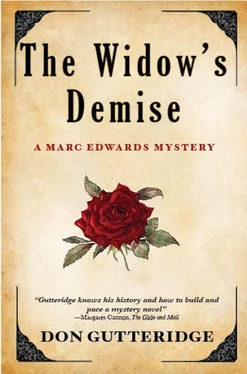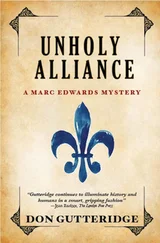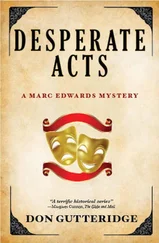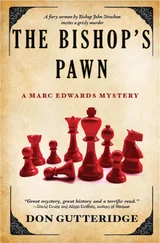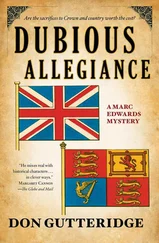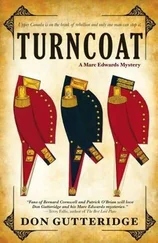Don Gutteridge - The Widow's Demise
Здесь есть возможность читать онлайн «Don Gutteridge - The Widow's Demise» весь текст электронной книги совершенно бесплатно (целиком полную версию без сокращений). В некоторых случаях можно слушать аудио, скачать через торрент в формате fb2 и присутствует краткое содержание. Год выпуска: 0101, Издательство: Bev Editions, Жанр: Исторический детектив, на английском языке. Описание произведения, (предисловие) а так же отзывы посетителей доступны на портале библиотеки ЛибКат.
- Название:The Widow's Demise
- Автор:
- Издательство:Bev Editions
- Жанр:
- Год:0101
- ISBN:нет данных
- Рейтинг книги:4 / 5. Голосов: 1
-
Избранное:Добавить в избранное
- Отзывы:
-
Ваша оценка:
- 80
- 1
- 2
- 3
- 4
- 5
The Widow's Demise: краткое содержание, описание и аннотация
Предлагаем к чтению аннотацию, описание, краткое содержание или предисловие (зависит от того, что написал сам автор книги «The Widow's Demise»). Если вы не нашли необходимую информацию о книге — напишите в комментариях, мы постараемся отыскать её.
The Widow's Demise — читать онлайн бесплатно полную книгу (весь текст) целиком
Ниже представлен текст книги, разбитый по страницам. Система сохранения места последней прочитанной страницы, позволяет с удобством читать онлайн бесплатно книгу «The Widow's Demise», без необходимости каждый раз заново искать на чём Вы остановились. Поставьте закладку, и сможете в любой момент перейти на страницу, на которой закончили чтение.
Интервал:
Закладка:
“Sarah. Sarah Teasdale.”
“Well, Sarah, do you remember the eveningwhen Mrs. Cardiff-Jones was killed?”
“Yes, I do. That’s the day I burned my fingeron the stove.”
“I need to know where your master andmistress were that evening – from seven o’clock onwards.”
“Now let me see if I can recollect,” Sarahsaid, pausing to think. “Oh, yes. The master had a headache andwent to bed right after supper. The mistress went out about seveno’clock to visit her cousin in town. I didn’t see her leave, but Iknow she went.”
“Were you here all evening?”
“Oh, no. I was feeling poorly, too, and wentto my room.”
“Are you the only servant?”
“Yes, sir. I clean and do the cooking.”
“So you couldn’t be absolutely sure yourmaster never left the house?”
“Why would he?”
“If he did, you wouldn’t have heard?”
“No, I suppose not.”
“Thank you. That’s all I need to know.”
And it was enough. He had proven that Mrs.Denfield had been dutifully lying for her husband’s sake. CecilDenfield had no real alibi. The Major would be very keen to knowthis. Cobb excused himself and headed straight for the CourtHouse.
***
Marc began his defense of Gilles Gagnon by callingto the stand Vera Mitchell, Delores Cardiff-Jones’s personalmaid.
“Miss Mitchell,” Marc began, “other than thekiller, you were the last person to see Mrs. Cardiff-Jones alive,were you not?”
“Yes, sir. I helped my mistress get ready togo out.”
“And where was she going on the evening ofher death?”
“She was going to visit Marion Stokes, herbest friend.”
“And when or how was this visitarranged?”
“A handwritten message was delivered by a boyto the front door and passed along to me.”
“A message ostensibly from MarionStokes?”
“Yes, sir. It was signed from MarionStokes.”
“What was the gist of the note?”
“It said that Marion needed to see Madamright away.”
“And you showed the note to yourmistress?”
“I took it up to her room – ”
“What time was this by the way?”
“About seven-fifteen.”
“So you took the note into your mistress,and?”
“And I told her what it said – it wasn’t inan envelope, so I couldn’t help reading it. She said, ‘I’ll goright away.’ And I helped her to get ready to go.”
“So your mistress did not actually read thenote?”
“No, sir. I put it on herdressing-table.”
“And I, Milord,” said Marc, “would like it tobe Exhibit A for the defense.”
The judge took the note, glanced through it,and handed it to his clerk.
“Now, Mrs. Mitchell, tell the court when youlearned this note was forged,” Marc said.
At this point, most of those in the galleriesleaned forward.
“The next day,” Vera said, “when Mrs. Stokescame to pay her respects, I mentioned that my mistress was headingout to visit her when she was killed. I mentioned the note. Mrs.Stokes said she did not write it.”
“So this fake note was obviously used to lureMrs. Cardiff-Jones out of her house right away. At aboutseven-thirty, as it turned out.”
“It would seem so, yes.”
“Possibly sent by the killer?”
“Milord,” McBride said, teetering on his tinyfeet, “Mr. Edwards is testifying.”
“You must not speculate or ruminate, Mr.Edwards.”
“Sorry, Milord,” Marc said, then turned backto the witness. “To your knowledge, ma’am, would anyone outside theimmediate family know that Mrs. Cardiff-Jones and Marion Stokeswere best friends? And that Mrs. Cardiff-Jones might respond rightaway to a request for help?”
“I doubt it, sir. Theirs was a very personal,private friendship.”
“So, if the killer sent the note to lure thevictim onto that public walk at seven-thirty, the killer would haveto be someone intimate with her family and theirrelationships?”
“I suppose so.”
“Now, to your knowledge, did Mr. Gagnon, thedefendant, ever visit Rosewood?”
“Only once, sir. He had a short meeting withthe master.”
“And as the defendant had been in Toronto foronly two weeks, it is highly improbable, is it not, that he knew ofthe friendship between the two women?”
“Very unlikely.”
“So he couldn’t very well have sent thatnote?”
“I doubt it.”
“Your witness, Mr. McBride.”
Marc sat down, well satisfied.
“Miss Mitchell,” McBride said with aningratiating smile, “do you go out with your mistress when she hasoccasion to leave the house?”
“Not usually, sir. Sometimes she takes mealong to carry parcels when she’s shopping.”
“And your mistress went out often?”
“Oh, yes. She was very sociable.”
“So you would often have no idea where shewent or who she went with?”
“Sometimes, but not always, no.”
“She could have been meeting with Mr. Gagnon,could she not? On numerous occasions during his two weeks intown?”
“It’s possible.”
“And in the course of their conversationcould he have learned about the friendship between Mrs.Cardiff-Jones and Marion Stokes?”
“Well, it’s possible, but – ”
“So, it is conceivable, is it not, that thedefendant could have written that forged note?”
Vera hesitated, then said quietly, “Yes, it’spossible.”
“No more questions, Milord.”
McBride had made his point but only bystretching credulity. There was no evidence that Gagnon andCardiff-Jones had met at all outside the dance. And Marc wouldhammer that point home in his summation.
“Redirect?” the judge said to Marc.
“Just one question,” Marc said. “MissMitchell, did your mistress confide in you? Tell you about herpersonal relationships?”
“Well, she did quite often. I often wishedshe didn’t tell me her secrets because I didn’t like keeping themand sometimes lying to the master.”
“Did she tell you about her gentlemanfriends?”
“Yes, sir,” Vera said, blanching and lookingdecidedly unsettled.
“Her lovers?”
Vera blushed, then said in a whisper,“Yes.”
“So it is very likely you would have known ifyour mistress were carrying on with Mr. Gagnon during his two weeksin Toronto?”
“Definitely, sir.”
“And you heard nothing of such arelationship?”’
“No, sir.”
“No more questions,” Marc said, and satdown.
The next witness was Miss Constance Brown.Beth had suggested to Marc that he had put too much emphasis on themurder as the crime, when it really was the tossing of the acidthat was the primary offence. And that was a crime of revenge, andmore likely to be a woman’s method. And Constance Brown was a womanseething with hurt and rage. At the moment she seemed relativelycalm, but puzzled as to why she was here.
“Miss Brown,” said Marc, “were you at onetime engaged to Mr. Horace Macy?”
“Milord,” snapped McBride, “what has thatquestion got to do with the murder of Mrs. Cardiff-Jones?”
“Mr. Edwards?”
“It goes to motive, Milord.”
“Very well, then, go ahead. But don’t loiter.You may answer the question, Miss Brown.”
“Yes. I was engaged to Mr. Macy,” Constancesaid.
“And was that engagement at some timerecently broken off?”
“It was.”
“Who broke it off, you or Macy?”
Constance glanced down, then back up. “Mr.Macy,” she said in a low voice.
“Did he give you a reason?”
Constance hesitated, then said quietly, “Hesaid he was in love with another woman.”
“Did he say who that woman was?”
“Yes. It was Delores Cardiff-Jones.”
This brought murmurs from the galleries.
“And how did you feel when he told youthis?”
Читать дальшеИнтервал:
Закладка:
Похожие книги на «The Widow's Demise»
Представляем Вашему вниманию похожие книги на «The Widow's Demise» списком для выбора. Мы отобрали схожую по названию и смыслу литературу в надежде предоставить читателям больше вариантов отыскать новые, интересные, ещё непрочитанные произведения.
Обсуждение, отзывы о книге «The Widow's Demise» и просто собственные мнения читателей. Оставьте ваши комментарии, напишите, что Вы думаете о произведении, его смысле или главных героях. Укажите что конкретно понравилось, а что нет, и почему Вы так считаете.
